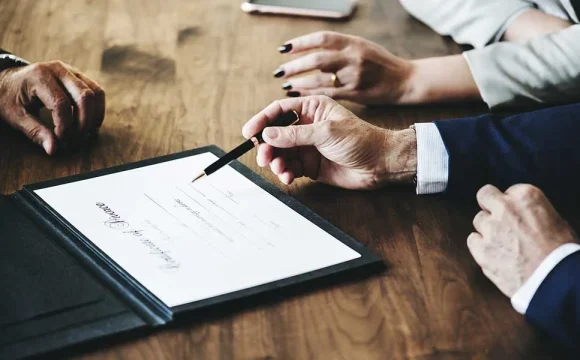A personal injury lawsuit may help you pay your medical bills, lost income, and other expenses if you were injured by the negligence of someone else. Your personal injury claim will be successful if you can provide the necessary evidence. In personal injury cases, evidence is essential to prove injuries, accident circumstances and liability. This article will explain the importance of evidence and how it affects your personal injury claim.
Establishing Liability
To win your personal injury case, you must prove that the other party was at fault. You must have evidence to show that their negligence or actions caused your injuries. Commonly used evidence to establish liability includes:
- Photos and videos: Visual evidence from the scene is persuasive. Photos or videos of the accident can help show what happened and who was at fault.
- Eyewitness Testimonies: Statements from witnesses may confirm what you have said and provide a new perspective. Eyewitnesses can testify to the events that led up to the accident and the behavior of the witnesses.
- Police reports are useful for accidents, incidents requiring law enforcement and other situations. It is a formal account. These reports contain an officer’s observations, as well as any citations issued.
How to prove the injuries
In order to receive the compensation you deserve, it is important that you demonstrate the severity of your injuries. Medical evidence is the cornerstone of proving your injury. These are the key elements:
- Medical Records: Your healthcare provider should maintain detailed records documenting your injuries. These records should include diagnoses, treatment plans, and any prescribed medications or therapies.
- Notes from your doctor: If your doctor has written specific notes about your injury, treatment progress and prognosis you can prove your injury affected your life.
- Expert Testimony. In some cases, medical professionals or other experts can provide testimony on the severity of your injury and how long it will take to recover. Their professional opinions could be an important factor in your claim.
Demonstrating Financial Losses
In many personal injury cases, compensation is sought to compensate for financial losses resulting from the injury. In order to prove your claim, you must provide proof of financial losses.
- Pay Stubs and Employment Records: To claim your lost wages, you must provide proof of both your regular income and any time missed due to an injury. Employment records can be used if your injury is likely to affect your ability to earn in the future.
- Keep all receipts and bills related to your injury. Included in this are medical bills, costs of travel to appointments and any other out-of-pocket expenses.
- Property Damage Estimates: If your personal property has been damaged and you want to quantify the financial loss, an estimate for repair or replacement can be helpful.
Damages Other Than Economic
Non-economic damages such as pain and suffering, emotional distress, and other types of damage can be included in personal injury claims. These damages can be more difficult to quantify but evidence is crucial.
- Personal Journals: By documenting your pain, your emotional state and the impact of the injury on your life, you can tell a compelling tale about your suffering.
- Testimonies from family and friends. Family and friends will testify to your changes in mood, behavior and life quality.
Preservation of Evidence
Evidence is crucial in a personal injury claim. It is important to preserve this evidence. You can preserve your evidence by following these tips:
- Act fast: Gather and preserve evidence as soon as possible after the incident. Evidence and memories may change over time.
- Organize your documentation: Keep relevant documents, photos and records organized and easily accessible. This will make it easier to present your evidence.
- Consult with professionals: Financial experts, medical advisors and legal advisers can all help you to gather the best evidence for your claim.
In personal injury claims, the burden of proof falls on injured parties. The strength of your case depends on how much and what kind of evidence you can provide. Evidence is essential to prove your injuries and liability.
Remember, every detail matters. Your case’s outcome can be greatly affected by your ability to collect evidence and document it in a timely manner. You will be able to navigate the personal injury claims process more efficiently if you understand the importance of evidence and take proactive measures to gather and preserve it. Your chances of winning will also be increased.
This article was written by Jeanette Secor PA Attorney at Law.
The law office of Jeanette Secor in St. Petersburg has been providing justice to those who have suffered an injury for over 20 years. Renowned as Personal injury attorney in st. petersburg, fl Jeanette Secor is a successful lawyer who has represented clients in motorcycle accidents, car accidents and slip-and fall incidents.








